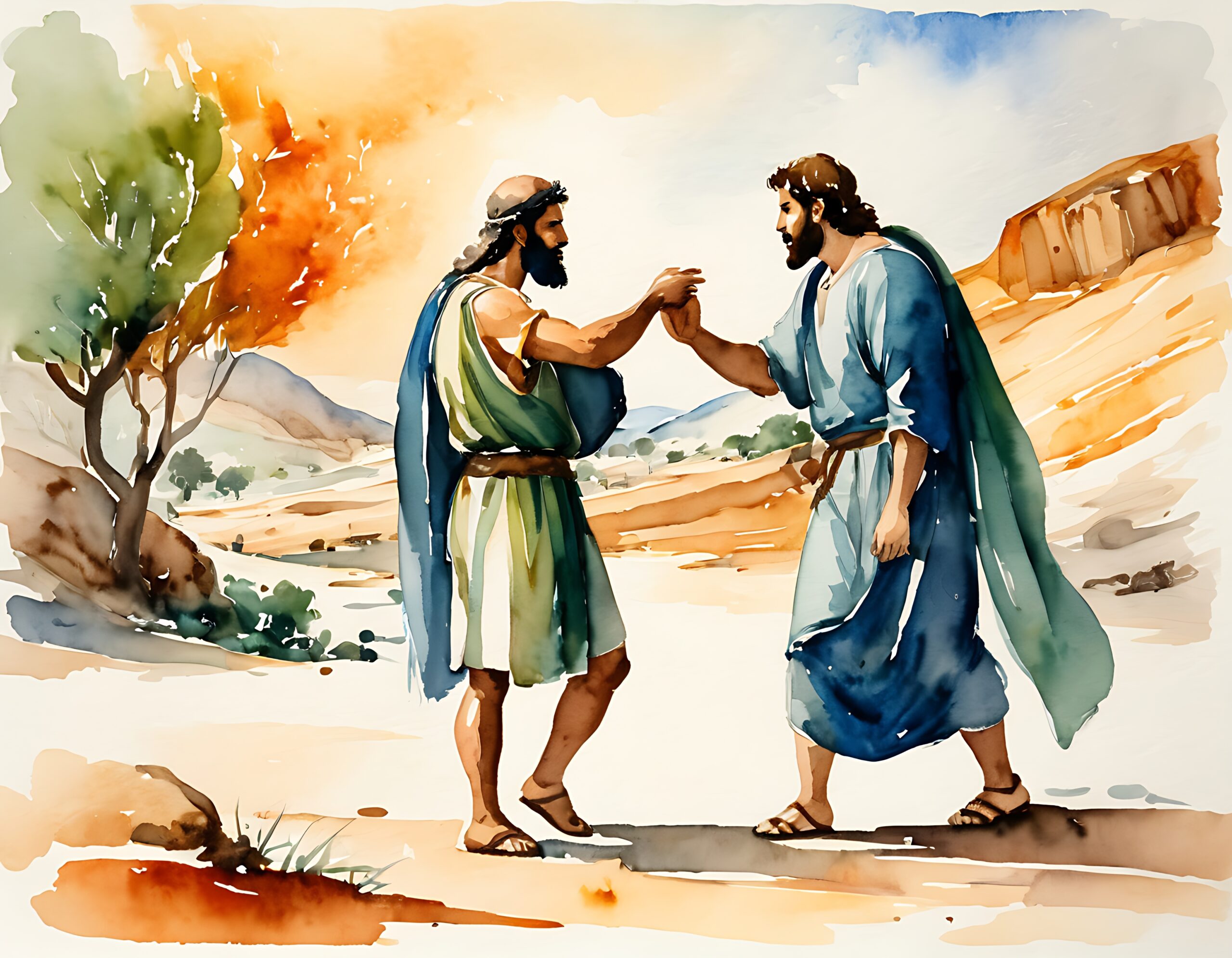
The Boast of the Humble, Part 1
Published July 9, 2025
In the opening chapter of 1 Corinthians, the apostle Paul addresses division in the church, reminding believers that seeking honor for themselves is contrary to the way of biblical gospel ministry and to the gospel message itself. The Corinthians, far from attempting to be considered wise or strong by worldly standards, should instead glory in the foolishness and weakness of the cross.
There was a second problem with how the Corinthians were living, revolving around boasting. People certainly don’t want to keep quiet about honor, status, rank, and prestige, especially if they work hard for it. Everyone can find a way to work something in somewhere they think will give them credit in the eyes of others.
Paul, then, focuses his attention in verses 26-31 on boasting, because the reality is that Christians should boast. Our boasting, however, must be limited to a certain kind. We should never boast about ourselves, or our status, rank, achievements, or titles. Rather, we should find our only boast in the Lord.
How do we become the kind of people who reject boasting, like the world, in ourselves; and how do we embrace boasting, like the humble, in the Lord? We must first understand our earthly position.
In verse 26, Paul calls us to a realistic view of who we are in the world. This verse hazarded greatly offending the Corinthians, because it hit them in the center of their pride. Paul essentially asks these believers, who were zealous to be thought well of, what did they really have that was so impressive?
Paul tells the Corinthians to consider their calling, which is the idea of intentional mental reflection on who they were at their conversion. In verse 2, Paul had reminded them that they were saints by calling. In verse 9, Paul told the Corinthians they were called into fellowship with God’s Son, Jesus Christ. Then, in verse 24, Paul describes all believers as the called. Christians are “the called” because we have been called out of death to life through a relationship with Jesus.
In directing the Corinthians to consider their calling, Paul exhorts them to think about who they were when they were saved by God’s effectual call – their position, status, achievements, and prestige. What kind of people does God primarily save? That is Paul’s emphasis.
Paul, then, answers this question by listing groups that are notably absent from their midst, at least in large measure. First, Paul says not many of them were wise according to human or worldly standards. Not many philosophers, respected thinkers, or pundits were in the Corinthian congregation.
Then Paul reminds them that not many were mighty when they were converted. These are the ones who make things happen, who dictate politics and trends, and who have positions of cultural influence and power.
Finally, Paul adds that not many of them were noble – or well-born. In the Greco-Roman world, there was very little upward mobility in society. We don’t have the same type of system in America today, but this idea is reflected in a few different ways. One way is in political dynasties. Another is in families that are extremely wealthy. There are also elevated classes of people based on their success in entertainment or sports.
When God called believers at Corinth to fellowship with His Son, most of them were not wise, powerful, or noble. This was their earthly position: lowly, insignificant in the eyes of the world, and of no consequence or importance.
This reality was not unique to Corinth but has always been God’s method of saving sinners. God saves the most unlikely, unknown, and obscure people. Not many historically have been wise, mighty, or noble. We can safely say not many in the future will be either, because that’s not God’s pattern.
Think about God’s pattern of saving sinners:
- Jacob and Esau: God upended all expectations by making clear the older of Rebekah’s twins, Esau, would serve Jacob, the younger, and the younger would be the heir of Abraham’s promise.
- Moses: God bypassed every leader from Egypt and Israel, picking a man who had run from Pharaoh and hid in the wilderness because he was afraid.
- David: David was the youngest of his brothers, and he was so unimpressive, even to his own family, he wasn’t invited to the feast with the prophet Samuel.
- Jeremiah: God’s call of Jeremiah to be a prophet was ridiculous, not only to others, but even to Jeremiah himself.
- Joseph and Mary: God chose two rather unlikely people to raise His Son: a carpenter and a young woman of no significance.
- Jesus’ Disciples: Jesus picked men who had no formal education, such that Israel’s rulers were shocked by their ability to speak in the book of Acts, recognizing only that these men had been with Jesus.
In Matthew 11:25-27, Jesus summed up how God called people, stating that His Father is well-pleased to save the lowly, the humble, the cast-offs, the nothings, the nobodies, and the people who no one else has any regard for.
So, who did Jesus call during His ministry in addition to His disciples?
- In Luke 7, He called a woman who was perceived useless, reprobate, and a sinner, too far gone ever to be loved by God.
- In Luke 19, Jesus called one person from the crowd around Him – Zaccheus, a publican, chief tax collector, and someone who had betrayed his nation and seemingly had sold his soul to the Romans.
- In John 4, Jesus, while visiting the Samaritans, saved the most unlikely candidate of all – an unmarried woman, who was living with a man who was not her husband after being divorced five times.
- In John 9, Jesus saved another unlikely candidate – the man who was born blind.
When Jesus did encounter someone who was rich, powerful, and influential – the rich, young ruler – Jesus told him to sell everything he owned and follow Him, but the young ruler went away sad because he loved his earthly possessions.
Not many wise, mighty, or noble were called. In fact, we find only two examples from the rich and powerful political and religious leaders of Israel during Jesus’ day who did believe in the Savior: Joseph of Arimathea and Nicodemus. Sometimes God calls those who are wise, mighty, and noble, but most people God calls are utterly insignificant, unknown, and unimportant in the eyes of the world.
That’s one reason why worldly boasting is so reprehensible. Our earthly position was nothing to boast of when we were unsaved; how much less should we seek to boast in our worldly status now that we have been called into a relationship with the Lord Jesus Christ? Corinthian Christians were trying to climb the earthly ladder of success, and Paul reminds them of the foolishness of boasting in themselves, especially when they consider their calling.
What is a rebuke to the proud, not to boast in our own achievements, status, or rank, is a fountain of life to the humble. It is a glorious reality to know God calls the nobodies, the nothings, the cast-offs, the useless, the anonymous, the poor, the broken, and sinners to repentance. God is not looking for those who think they’re good enough because of their wealth, wisdom, scholarship, knowledge, or credentials. The good news of the gospel is that God calls specifically those who are not good enough in the world’s eyes and who know they need to be delivered because they have nothing to offer the Lord.
Have you heard His gospel call, and put your faith in Jesus Christ?




0 Comments